91-year-old Jock Scott recalls the thrills of riding speedway for Edinburgh Monarchs at Old Meadowbank in the Fifties
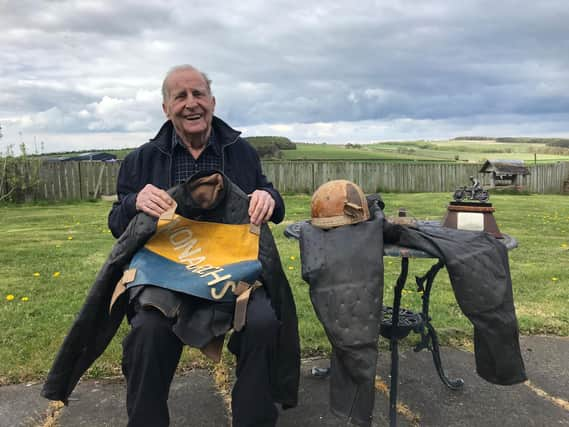

He has also found himself flicking through old photo albums, one in particular bringing back treasured memories of the golden age of speedway. It was an era when tens of thousands headed to Old Meadowbank Stadium every Saturday night to roar on the mighty Edinburgh Monarchs. Jock was one of them until, at the age of just 24, he realised a long-held dream when, having been spotted taking part in a novice race, he was signed to ride for the club he continues to follow to this day.
From lockdown, Jock recalls, “They tried out new riders during meetings in what they called a novices’ race. That was how you started out in those days, and I got a trial race. There were two or three of us taking part and I qualified - there was actually two of us got signed up, Harry Darling and myself, we both qualified.”
Advertisement
Hide AdAdvertisement
Hide AdJoining the team in a reserve berth, Jock donned the blue and gold team colours in 28 meetings during his first season, and turned out for the club again in 1953 and 1954, however, it was in France that he first got the bug to race.
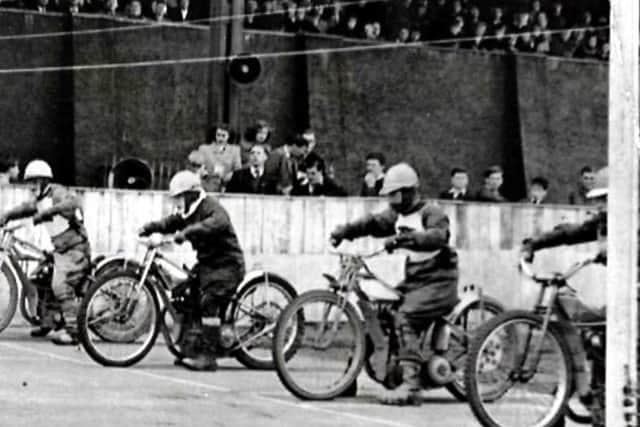

He reveals, “The first time I ever saw speedway was in Paris when I was stationed there - at the time I was riding a bike in the Army, and seeing that gave me the idea. It looked great and I thought, ‘I’d fair like to do that myself’.”
In the 1950s, Edinburgh rode in the Old Meadowbank, home of Leith Athletic Football Club. The stadium was demolished in the late-60s to allow a new velodrome and stadium to be built for the 1970 Commonwealth Games. Jock has fond memories of the venue.
“Old Meadowbank was always chockablock and had a great atmosphere. All the riders mucked in together, but when you went out to race, you went out to beat the others. Afterwards, you all helped each other again, there was great comradeship.”
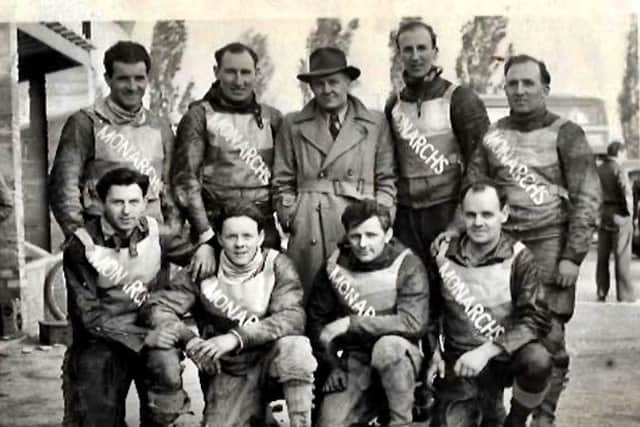

Advertisement
Hide AdAdvertisement
Hide Ad“I drove a heavy goods lorry, but it was a different world back then.”
He recalls, “I had to get a bike and in those days the bikes had what they called J.A.P. engines. The Monarchs’ team manager at the time, a former rider called Clem Mitchell, used to make the frames himself. So my bike had a J.A.P. engine on a Mitchell frame. On a race night I’d put the bike in the boot of my car and drive to the stadium; you could take the front wheel off so that it fitted. I had a big American car with a great big boot and the bike fitted no bother.”
He continues, “There was a grand workshop at Old Meadowbank, we each had our own stand for checking and servicing our bikes. So it was just a case of putting the wheel back on there and then you went down to the pits and got ready to race.”
The Meadowbank track was “fair fast” he remembers, and “well looked after” and on a Saturday night, Jock would line up with names that, like his, now feature in the Monarchs’ hall of fame.
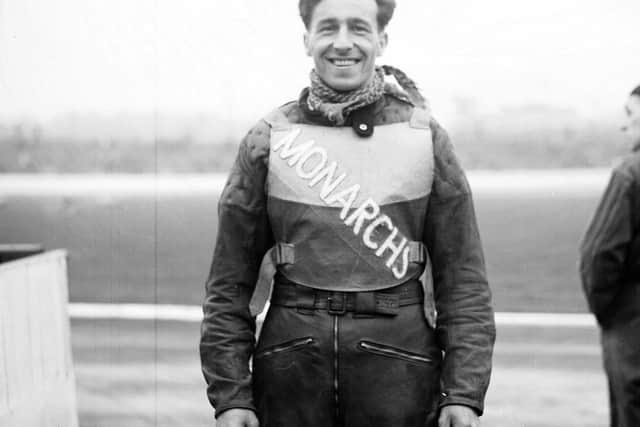

Advertisement
Hide AdAdvertisement
Hide Ad“I learned by watching Dick Campbell, Harold Fairhurst and Eddie Lack who were all older than Harry and I, we were the young ones and they looked after us. And there were all nationalities too, Scots, Australians, English and Roy Bester, who was a South African. It was a good mix and there was never any bother.”
Payment for putting their lives on the line every time they took to the track was £4 a meeting and what ever points money they could earn to top that up. Not a huge return for racing on a fixed gear bike with no brakes and absolutely no health and safety as we know it today. “We had a £4 guarantee per match and points money for each point we scored, I’ve often tried to remember how much that was but I’m not sure, maybe £1.50 a point, something like that.” In speedway, riders are awarded three points for a win, two for second and one for third - a last place earns you nothing.
One thing that hasn’t changed since Jock rode is the rivalry between Edinburgh and arch rivals, Glasgow Tigers. In 1952, when Monarchs finished sixth in the league with Glasgow one place above them, it was particularly tense year. Older fans still recall a local home derby that year when Jock and Harry Darling, riding at reserve, went out and scored a 5-1 (first and second places) in a race that turned the home team’s fortunes and spurred them on to an unexpected win.
“The atmosphere was amazing. We could hear the crowd shouting us on,” says Jock.
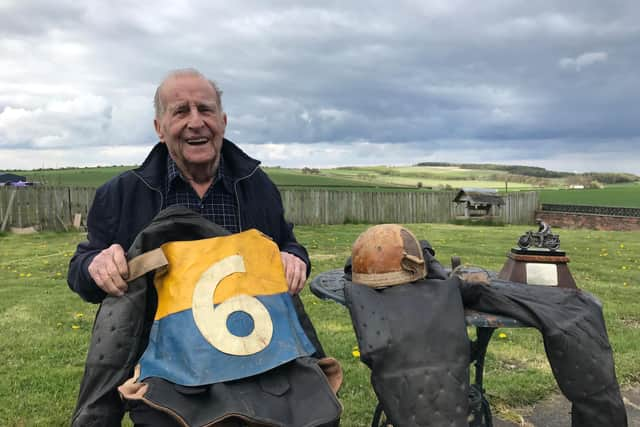

Advertisement
Hide AdAdvertisement
Hide AdWhile modern day speedway sees rider safety paramount with full face helmets and body armour beneath the racesuits, the 50s were a far simpler time.
“We just wore leathers, but you didn’t have the advertising on them that you have today. Then you had your Monarchs’ breastplate, leather trousers and jacket and your steel shoe on your left boot. I still have them all,” he adds, proudly, “everything but the bike and I last wore them in 1954. I’ve also got a trophy from the Monarchs’ Supporters’ Club, Broughton Branch - as I was the last to win it, they let me keep it.”
There was a reason Jock was the last to receive the trophy, the club stopped racing at Old Meadowbank in 1954 after a post-war entertainment tax made the operation no longer financially viable. Speedway would return to the venue in 1960, but by then Jock had decided to retire from the sport, aged just 26.
“When the team closed I thought, ‘There’s not going to be a future in this now, I better look after my own’.”
Advertisement
Hide AdAdvertisement
Hide AdHe did continue to support the team when they returned six years later and still smarts at the decision to pull down the old stadium. “The councillors couldn’t see any further than the end of their nose when they decided to shut Old Meadowbank, all the income they had from the football and the income they had from the speedway was lost.”
Jock again follow his sport when speedway returned to Edinburgh at Powderhall Stadium in 1977, and can occasionally be seen at Armadale Stadium, where the team now race. Two years ago, he was a guest of honour when the club celebrated its 70th Anniversary, signing autographs for fans and posing for photographs. It gave him a reminder of what life was like nearly seven decades ago.
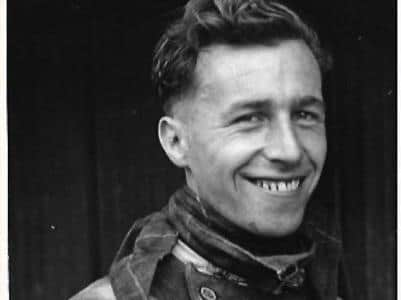

“There were very keen speedway fans,” he recalls, “and if they saw you and they recognised you, they let you know that they had recognised you. It was a nice feeling, knowing that they were enjoying what you were doing and they were aye wanting autographs. But it’s a while since I’ve been to see the Monarchs at Armadale as I’m not so young now, but I do follow the match reports in the paper.”
Looking at the black and white photos of his younger self reminds Jock of the “good times”, he says, reflecting, “We certainly enjoyed life.”
Advertisement
Hide AdAdvertisement
Hide AdFor news of Edinburgh ‘What The Fork’ Monarchs’ current season and to watch the club’s live EMTV broadcasts, visit www.edinburghnews,com
Thank you for reading this story on our website. While I have your attention, I also have an important request to make of you.
In order for us to continue to provide high quality and trusted local news on this free-to-read site, I am asking you to also please purchase a copy of our newspaper.
Our journalists are highly trained and our content is independently regulated by IPSO to some of the most rigorous standards in the world. But being your eyes and ears comes at a price. So we need your support more than ever to buy our newspapers during this crisis.
Advertisement
Hide AdAdvertisement
Hide AdWith the coronavirus lockdown having a major impact on many of our local valued advertisers - and consequently the advertising that we receive - we are more reliant than ever on you helping us to provide you with news and information by buying a copy of our newspaper.
Thank you
Joy Yates
Editorial Director
Comment Guidelines
National World encourages reader discussion on our stories. User feedback, insights and back-and-forth exchanges add a rich layer of context to reporting. Please review our Community Guidelines before commenting.